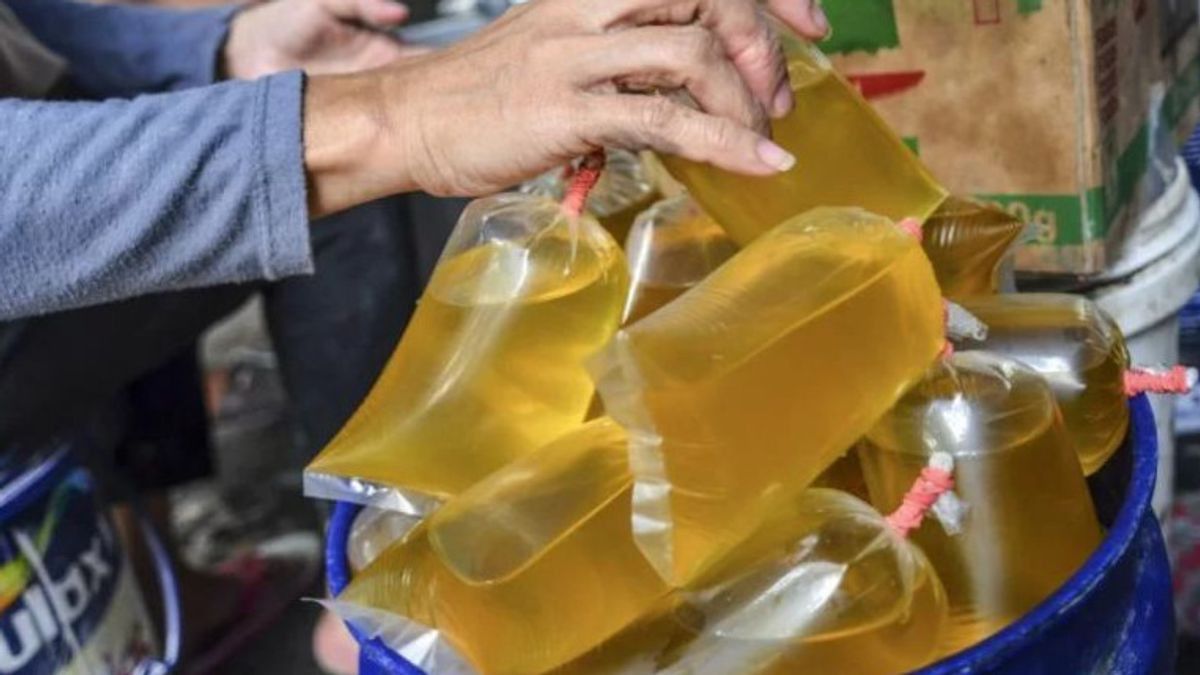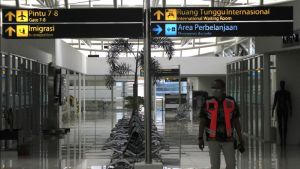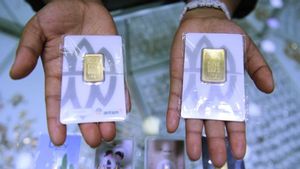JAKARTA - The government has almost banned the sale of bulk cooking oil. In fact, it is now an option for the community when the price of packaged cooking oil soars.
In fact, its existence is also difficult to find in some areas after the government set a policy of the highest retail price (HET) for bulk cooking oil of Rp. 14,000 per liter.
The issue of the prohibition of bulk cooking oil had emerged in 2019, during the era of the Minister of Trade Enggartiasto Lukita. The reason, because of health factors. However, this policy has not been implemented.
In the era of the Minister of Trade Muhammad Lutfi, the discourse of banning the circulation of bulk cooking oil was raised again. Along with the issuance of Minister of Trade Regulation Number 36 of 2021 concerning Mandatory Packaged Palm Cooking Oil. As an implementation of the regulation, starting January 1, 2022, cooking oil in bulk form cannot be traded.
Summarized from various sources, in November 2021, the Director General of Domestic Trade at the Ministry of Trade, Oke Nurman, said that the mandatory packaged cooking oil policy was one of the government's interventions to deal with high stable prices. Packaged cooking oil is considered to have a stable price because of its shelf life of up to one year.
Apart from stable prices, Oke explained that packaged cooking oil provides food safety guarantees for consumers.
The Minister of Trade Regulation Number 36 of 2021 also states that simple packaged cooking oil must still comply with the provisions of the legislation.
On its way, at the end of 2021 the Ministry of Trade officially canceled the plan to prohibit the transmission of bulk cooking oil starting January 1, 2022. Thus, bulk cooking oil may still be circulated and sold this year.
Solution, but hard to find
Ironically, now bulk cooking oil is the sole option to address the domestic cooking oil problem, after the government revoked the HET for packaged cooking oil and the domestic market obligation (DMO) and domestic price obligation (DPO) policies.
The government also provides subsidies for bulk cooking oil, bringing the price to IDR 14,000 per liter for bulk palm cooking oil, both sold in supermarkets and traditional markets.
Coordinating Minister for the Economy Airlangga Hartanto said the policy was taken after the government paid attention to the distribution situation and the distribution of cooking oil. In addition, the provision of subsidies is also carried out after observing the global situation which has resulted in an increase in the price of oil commodities, including vegetable oil.
Airlangga explained that the subsidy will be given based on funds from BPDP-KS. According to him, the price of other packaging will certainly adjust to the economic price. So it is hoped that with this economic value, palm oil will be available in modern markets as well as in traditional markets.
The Central Executive Board of the Indonesian Market Traders Association (DPP IKAPPI) assessed that the government's policy regarding the HET of bulk cooking oil of Rp. 14,000 per liter had not been effective. This is because the price of subsidized cooking oil is not evenly distributed in traditional markets, and the price is even higher, reaching Rp. 20,000 per liter.
Deputy Secretary General of Public Policy of the DPP IKAPPI, Teguh Stiawan, said that based on the reports received, several regions and some areas in traditional markets had difficulty distributing bulk cooking oil. Even worse, the price is still in the range of Rp. 20,000, far from the HET set by the government.
"IKAPPI considers that the government has failed to stabilize the price of bulk cooking oil, which has set a maximum retail price of Rp. 14,000," he said, quoted on Sunday, March 27.
According to Teguh, the long distribution is one of the factors driving the price of bulk cooking oil which continues to soar.
Therefore, IKAPPI reminded all parties including the Coordinating Minister for Economic Affairs Airlangga Hartanto, Minister of Trade Muhammad Lutfi and producers to provide convenience in distribution.
"It's like direct access to markets and the most important thing is to keep bulk cooking oil from flooding traditional markets," he said.
Furthermore, Teguh said IKAPPI hopes that before Ramadan, HET can be realized in traditional markets.
"So that people can buy bulk cooking oil at affordable prices and enjoy Ramadan without being burdened with heavy spending for the community," he said.
Previously reported, Member of Commission VI DPR Andre Rosiade also questioned the government's performance in ensuring the availability of cooking oil and maintaining the stability of the price of Bulk Cooking Oil for the needs of the community, micro and small businesses.
In this case, Coordinating Minister for the Economy Airlangga Hartarto and Minister of Industry Agus Gumiwang Kartasasmita.
"General Chairperson of the All-Indonesian Market Trade Association (APPSI) Mas Sudaryono contacted me, he said market traders were screaming because the bulk cooking oil promised by the government was still 'unseen' in the market. I feel sorry for the people. ?," said Andre, in Jakarta, Wednesday, March 23.
Andre explained in the last working meeting of the DPR-RI Commission VI, Trade Minister Muhammad Lutfi said the bulk cooking oil production process would be determined by the Ministry of Industry (Kemenperin) starting from producers to distributors.
Moreover, now, the Ministry of Industry has issued Minister of Industry Regulation (Permenperin) Number 8 of 2022 concerning the Provision of Bulk Cooking Oil for Community, Micro, and Small Business Needs in the Financing Framework by the Palm Oil Plantation Fund Management Agency (BPDPKS).
"The regulation regulates the obligation to supply Bulk Cooking Oil domestically. But in fact, there are 16 thousand markets in Indonesia where APPSI members and management do not find the bulk cooking oil at a price of Rp. 14,000 per liter or Rp. 15,500 per kilogram. in accordance with the Minister of Trade Regulation No. 11 of 2022," regretted Andre.
The English, Chinese, Japanese, Arabic, and French versions are automatically generated by the AI. So there may still be inaccuracies in translating, please always see Indonesian as our main language. (system supported by DigitalSiber.id)










